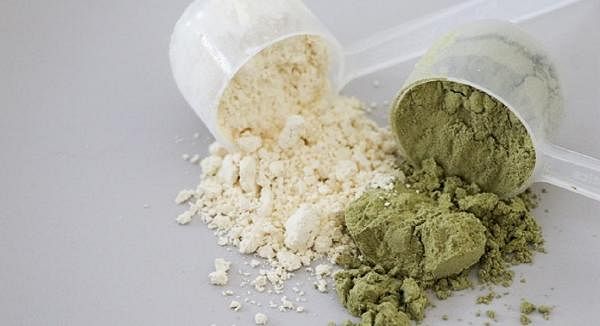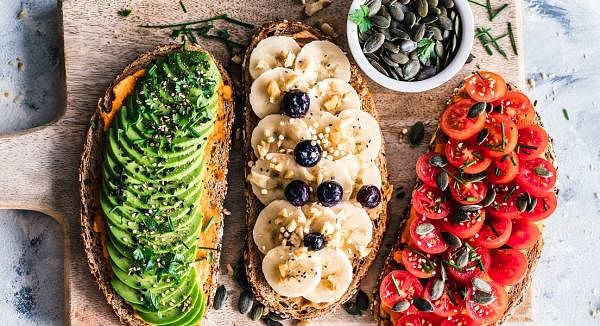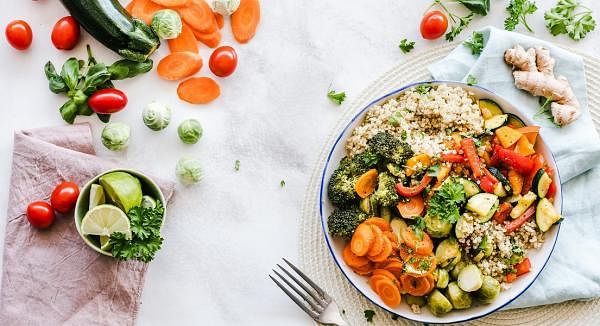Christmas Dinner: The Best Bits!
Why you can trust Nutri Advanced Every article on our site is researched thoroughly by our team of highly qualified nutritionists. Find out more about our editorial process.
Nutrition experts reckon that the average food and drink intake on Christmas day could add up to a staggering 6,000 calories! And whilst it’s true that much of this comes in the form of sugary desserts and snacks (mince pies, Christmas pudding…) and calorie-laden alcoholic drinks, there are also some seriously nutritious aspects too. Food and drink intake over Christmas often gets a bad press so we’ve decided instead to celebrate what’s good about our traditional festive dinner.
The Nutritious Guide to Christmas Food!
• Nut Roast – Not just for vegetarians,a nut roast is a great addition to any table at Christmas. You can pack a nut roast with vegetables, fruit, nuts and even nutritious grains like quinoa. Nut roast is traditionally made with chestnuts, which are a rich source of Vitamin C - great for a winter immune boost.
• Turkey – This Christmas staple for many is in fact a pretty nutritious choice of meat; it is a low fat source of protein, which is rich in the essential amino acid tryptophan - an important precursor to the feel-good neurotransmitter serotonin.
• Brussels Sprouts – One of the nutrition powerhouses in the vegetable world, it’s such a shame (many would disagree!) that sprouts only really get space on our plates at Christmas. Love them or hate them, sprouts are a rich source of nutrients including Vitamin C and folate. They also contain powerful glucosinolate phytonutrients, which support the body’s detoxification enzymes, helping to clear potentially carcinogenic substances from the body more quickly.
• Nuts – Modern day diets are often lacking in essential fats; so snacking on a few extra nuts around Christmas is a great way to up your intake. Packed full of protein too; nuts are a great way to keep your blood sugar levels balanced to help reduce sugary cravings.
• Festive Fruits – Christmas often features brightly-coloured fruits and vegetables such as cranberries, blueberries, pomegranate, redcurrants, carrots, beetroot and clementines. Choose to include these in your festive fayre and you will benefit from immune-boosting nutrients Vitamin C and beta carotene and a wide array of antioxidant phytonutrients too.
• Pomegranate – The jewel-like seeds of the pomegranate deserve a special Christmas mention as they are fast becoming renowned as a superfood for their impressive nutrient value. They score even higher than blueberries on the ORAC antioxidant scale - they are known to contain powerful polyphenols, which help to protect against cell damage. Research has also shown that they help to protect against some of the factors that contribute towards heart disease.
• Red Wine – Perhaps there was a lot of truth in Plato’s famous quote, ‘nothing more excellent or valuable than wine was ever granted by the gods to man’. Whilst we’re not advocating excessive drinking over the festive period, if you fancy a tipple this Christmas, red wine is still the ‘healthiest’ option! Some research has shown that red wine, when consumed in moderation may offer significant health benefits. The health benefits of drinking red wine have long been attributed to the polyphenolic compounds present in grape skins; namely resveratrol. Add cinnamon, spices, cloves & orange juice to make a warming mulled wine for a lovely festive option.
This website and its content is copyright of Nutri Advanced ©. All rights reserved. See our terms & conditions for more detail.
Nutri Advanced has a thorough research process and for any references included, each source is scrutinised beforehand. We aim to use the highest value source where possible, referencing peer-reviewed journals and official guidelines in the first instance before alternatives. You can learn more about how we ensure our content is accurate at time of publication on our editorial policy.
Most Popular Articles
-
7 Surprising Ways To Support Your Magnesium
If you are displaying signs of a magnesium deficiency, here are 7 ways to boost your magnesium levels that are easy to incorporate into your daily life. -
5 Best Vitamin C Supplements Picked By Our Experts
Learn more about the different types of vitamin C, the different benefits you get from different types, and what you get for spending more on a good supplement. -
Top 5 Vitamins For Energy And Tiredness Picked By Our Experts
The 5 best and most important vitamins for energy & tiredness including B vitamin food sources & best supplement forms for energy. -
Benefits of Myo-Inositol for Polycystic Ovary Syndrome (PCOS)
In this research review article, we take a closer look at a lesser-known natural compound called myo-inositol that has been found to have significant potential to improve many of the prevalent features of PCOS. -
Top 10 Reasons to Give Your Kids Omega-3
Read the top 10 reasons that kids should have plenty of Omega-3- an essential fatty acid- including for depression, brain function, sleep & reading/maths skills.











